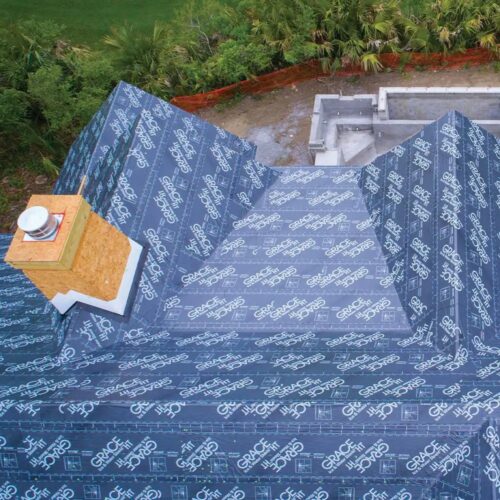A Guide to Understanding How Long a Roof Lasts
A Guide to Understanding How Long a Roof Lasts, by Scott Gordon, Owner of FirstLine Roofing
A roof is an essential part of any home or building. It’s responsible for protecting the interior from the elements, and it’s also one of the most expensive components of a property. As a homeowner or property manager, you’re likely curious about how long a roof lasts, and what factors can affect its lifespan. In this guide, we’ll break down everything you need to know about roof lifespan, so you can make informed decisions about your property.
Factors That Affect Roof Lifespan
The lifespan of a roof is influenced by various factors. Here are some of the most important ones:
- Material: The type of material used in a roof affects its lifespan. For example, asphalt shingles have an average lifespan of 20 years, while metal roofs can last 50 years or more.
- Quality of installation: The quality of installation is a critical factor in how long a roof lasts. A poorly installed roof can fail prematurely, while a well-installed roof can last for decades.
- Climate: The climate in your area affects the lifespan of your roof. Extreme temperatures, humidity, and wind can cause roof damage over time.
- Maintenance: Regular maintenance helps extend the lifespan of a roof. Cleaning gutters, removing debris, and identifying and repairing issues early can make a big difference in the longevity of a roof.
- Sun exposure: Ultraviolet (UV) rays from the sun can cause damage to a roof, particularly to flat roofs.
How Long Do Different Types of Roofs Last?
The lifespan of a roof depends on the material used, the quality of installation, and the factors listed above. Here are some estimates for how long different types of roofs last:
- Asphalt shingle roofs typically last 15-30 years.
- Metal roofs can last 50 years or more.
- Tile roofs can last 50-100 years.
- Slate roofs can last up to 200 years.
It’s essential to note that these are general estimates, and a roof’s lifespan may vary based on its specific circumstances.
The Importance of Regular Roof Inspections
Regular roof inspections are vital to catching issues early and preventing major problems down the line. Professional roof inspectors can identify leaks, damage, and other issues that might affect the lifespan of your roof. You can inspect your roof yourself, but it’s always a good idea to have a professional do it to get an expert opinion.
What to Do If Your Roof Needs Replacement
If your roof is reaching the end of its lifespan or is experiencing significant damage, you may need to replace it. A professional roofing contractor can evaluate your roof and recommend the best course of action. A new roof can be a significant investment, but it’s essential to ensure the safety and value of your property.
Final Thoughts
In conclusion, understanding how long a roof lasts is a critical component of maintaining your property. Regular maintenance, quality installation, and identifying issues early can help extend the lifespan of your roof. If you have concerns about your roof or are in need of replacement, FirstLine Roofing can provide you with expert advice and guidance.


